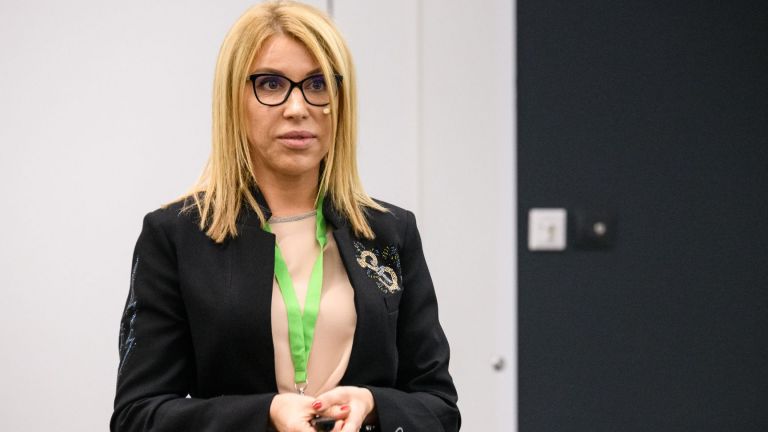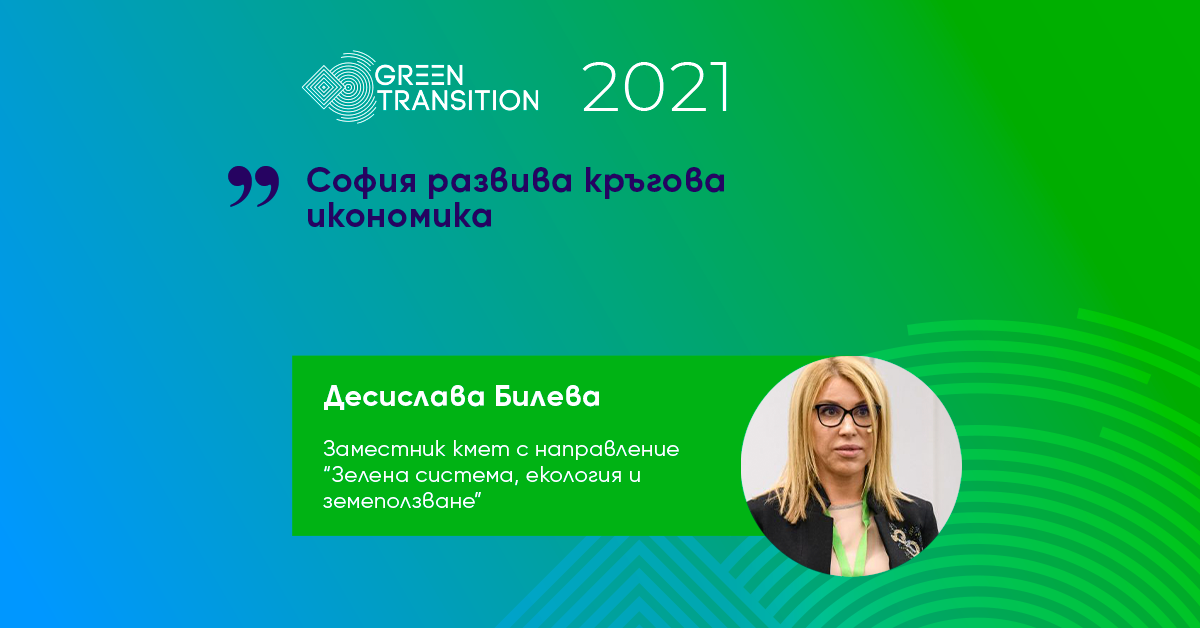We are making Sofia a smart city, developing the circular economy. This was stated by Desislava Bileva, the capital’s deputy mayor with the direction “Green system, ecology and land use” during her participation in the international forum “The Green Transition – Challenges and Solutions for Bulgaria”, organized by Dir.bg and 3eNews.
Desislava Bileva emphasized that the Metropolitan Municipality has many municipal buildings that have solar potential. And he pointed out that the Municipal Enterprise for waste treatment and the Zoo are the biggest consumers of electricity.
“Precisely for them, the municipality is already developing studies on their solar potential. This year, investment intentions will be launched in order to take advantage of the potential of renewable energy”, she announced. According to her, there are hundreds of buildings in Sofia that have solar potential, among them are kindergartens, restaurants, and municipal DCCs.
“Sofia generates 30% of the gross domestic product per capita. Everyone prefers Sofia as a city to live in and it keeps getting nicer and better. We must admit, however, that there are problems and risks that the capital is facing”, commented the Deputy Mayor of Sofia.
As the main challenges, she pointed to the rise in temperatures and drought, which affect both the infrastructure and the green system on the territory of the Metropolitan Municipality. And also the energy deficits and the increased risk of floods.
“Knowing about all these problems, here is the moment to tell the positive news – we have already taken concrete actions”, Bileva said categorically. According to her, people from the scientific community and non-governmental organizations, as well as citizens, are involved in the process.

The deputy mayor also announced that last week the Metropolitan Municipal Council adopted a Sustainable Energy and Climate Plan, which has a 10-year horizon.
“In it, for the first time, we made a regional climate model of the capital, i.e. in Sofia to be able to influence all regions separately, territorially and according to the specifics of the atmosphere and the influence that the climate has in the given region”, she explained. And he added that a study of the effect of the urban heat island has been done.
“It turned out that urban heat islands are a big problem for air quality in general, because of the “sealed” spaces that are formed, which generate dust and a higher level of FPH”, said Desislava Bileva.
According to her, this problem can be tackled with a mechanism of several measures – cooling park planning measures, greening of the open spaces around the buildings, facade landscaping and protection and development of public green areas.
“Sofia is a green city – almost 52% of the territory of the city’s urbanized space is occupied by green areas. It is important that the central part of the city is green, something that very few European capitals can boast of,” said Desislava Bileva.
Regarding the circular economy, she recalled that since 2015 a very modern plant has been put into operation. It is about the Yana Station plant for ecological waste treatment, where Sofia’s garbage is processed and RDF fuel is produced.
“We are about to build a third phase, because in this way, we are closing the integrated system of the Metropolitan Municipality”, Bileva explained.
She also recalled that in the capital there is an installation for the treatment of bio-waste, which has a capacity of 20,000 tons and produces electricity from it.
“But that doesn’t mean we will stop there. Bio-waste will be collected separately from households, so that we can make maximum use of the installations we already have”, said Bileva categorically.
